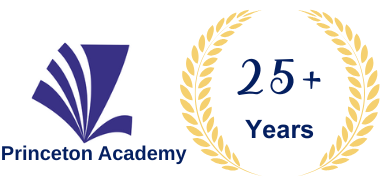Â
Â
Â
Â
Â
Effective Leaders realize the importance of influence. One can only influence if you understand self and others. Success in the current business environment greatly depends on our ability to understand effectively manage emotions, in both ourselves and others. Understanding and managing emotions is the key to effective communication and developing effective work relationships, which in turn are critical factors to meaningful collaboration, leadership, employee retention and performance.
The knowledge, skills and abilities we now know as Emotional Intelligence Competencies influence our productivity and quality of life we enjoy. Now more than ever, Socia l and Emotional Intelligence competencies are becoming the ‘new yardstick’ by which employees and leaders are measured. Research validates that Competencies like Self Awareness, Empathy and Inspirational Leaderships are the true precursors to success.Â
Target Audience:
Business Unit Head, HR Professionals, Managers from all Disciplines
Day -Â 1
|
Timings |
Topics |
Description |
|  0900 – 0930 | Registration (Breakfast)
Welcome  with Lighting of the Lamp and Introduction to EI (0925-0930) |
|
|
0930 – 1015 |
Business  Case of EI |
(Group Exercise and Presentation of  Research Case Studies of relationship to Emotional Intelligence Competencies  and Organizational Results like to sales, attrition and productivity ) |
|
1015 – 1115 |
Neuroscience  of EI |
Pedagogy:  (Research Presentations, Individual and Group Exercises, Case Study and  Discussions, Individual and Group Games) |
|
1100 – 1130 |
 Tea Break & Networking |
|
|
1130 – 1200 |
Domains  of Emotional Intelligence  Self Awareness |
Â
|
|
1200 – 1300 |
Personal  Vision |
 (based on the Fifth Discipline by Peter  Senge, Faculty at MIT Boston)
|
|
1300 – 1400 |
Lunch Break & Networking |
|
|
1400 – 1530 |
Self-Management |
|
|
1530-1600 |
Tea Break & Networking |
|
|
1600 – 1700 |
Social  Awareness |
 |
 Day – 2
|
Timings |
Topics |
Description |
| 0900 – 0930 | Breakfast |
— |
| 0930 – 1100 | Relationship  Management |
|
| 1100 – 1130 |
Tea Break & Networking leadership development training |
|
| 1130 – 1300 | Emotional Skill  Assessment Process (ESAP) | Understanding  the Emotional Skill Assessment Process Tool and our Emotional Learning  System: Explore, Identify, Understand, Learn, Apply & Model;
 |
| 1300 – 1400 |
Lunch Break  |
|
| 1400 – 1530 | ESAP – EI Tool |
|
| 1530 – 1630 | Leadership Styles |
|
| 1630 – 1645 |
Tea Break & Networking — |
|
| 1645 – 1730 | Feedback and  Closure | Certificate  distribution by Dr. Darwin Nelson and FEIL/CCLD |
  Faculty:
Â
Â
Â
     Â
Â
Mr. Ashis Sen
-
Head – Training, leadership development training Balanced Scorecard (Strategy Building, Translation, Monitoring and Review) in Hindustan Petroleum Corporation Limited.
-
Has been recognized by Dr. Daniel Goleman and Dr. Richard Boyatzis the two legends in the field of EI and Leadership for his outstanding work and contribution in the field of EI.
- He  is certified on: Executive Coaching from the renowned Hay Group.
-
He has received the Palladium Balanced Scorecard Hall of Fame for Excellence in Strategy Execution
-
He visited Harvard Business School, Boston USA, in May 2010 on their invite to build case study on communication practices and visioning process adopted at HPCL.
-
He was invited by Dr Cary Cherniss of Rutgers University, US for delivering a talk at the EI consortium meet at Boston.
-
His work has been appreciated by Dr. Richard Boyatzis and Dr. Daniel Goleman who are pioneers in the field of Leadership and Emotional Intelligence.
-
He has authored a book titled “Fuelling Success†on the transformation of HPCL
-
Mr. Sen’s articles have been published in International Magazines like Reflections and Systems Thinker, Balanced Scorecard Report (Harvard Business Publishing), Times of India, Human Factor, Petrotech, amongst other leading journals.
 Timings: 9:30 am – 5:00 pm  Registration begins at 9:00 am
- Fees: Rs. 20,000/- +12.36 % service tax per person.
- Please write to register@princetonacademy.co.in / Call -022 66976892
- Mention the name of participant, company, contact details .
- Cheque favouring Princeton Academy Mumbai II Pvt. Ltd. payable at Mumbai.
- Fees includes lunch, tea, course material etc.
      Book by Mr. Ashis Sen on Fuelling Success published by SAGE will be given to all participants.



